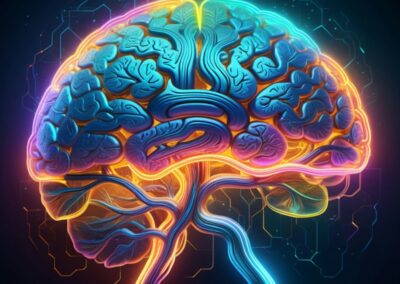How AI is Transforming Mental Health Care and Improving Patient Outcomes
AI in Mental Health Care: A New Era of Patient Outcomes
Artificial Intelligence (AI) in mental health care is paving the way for a new era in patient outcomes, offering unprecedented opportunities to enhance treatment and support services. In regions like Saudi Arabia and the UAE, where technological innovation is a priority, AI is being increasingly integrated into healthcare systems to address mental health challenges effectively. By leveraging AI, healthcare providers can offer more personalized and timely care, ultimately improving patient outcomes.
In Saudi Arabia, initiatives aligned with Vision 2030 are promoting the adoption of AI across various sectors, including healthcare. AI-powered tools can analyze vast amounts of data from patient histories, behaviors, and responses to treatments, providing clinicians with valuable insights that can inform more accurate diagnoses and personalized treatment plans. This approach is particularly beneficial in mental health care, where understanding individual patient nuances is crucial for effective treatment.
Similarly, in the UAE, AI integration in mental health care is supported by national strategies focused on innovation and digital transformation. AI can facilitate early detection of mental health issues through predictive analytics, allowing for timely interventions that can prevent the escalation of conditions. In bustling cities like Dubai and Abu Dhabi, where the pace of life can contribute to mental health stressors, AI-driven solutions offer a proactive approach to mental health management, ensuring that residents receive the care they need promptly.
Enhancing Mental Health Care through AI-Powered Tools
AI-powered tools are revolutionizing mental health care by enhancing the capabilities of traditional therapeutic methods and introducing new ways to engage with patients. In Saudi Arabia and the UAE, mental health professionals are increasingly utilizing AI-driven applications and platforms to deliver therapy, monitor patient progress, and provide support. These tools include chatbots, virtual reality (VR) therapy, and mobile health apps that offer continuous support and real-time feedback.
In Riyadh, for instance, AI-driven chatbots are being used to provide immediate mental health support to individuals in need. These chatbots can engage in conversations, offer coping strategies, and even detect signs of distress that may require human intervention. This technology ensures that support is available around the clock, reducing the burden on healthcare facilities and providing patients with a reliable source of assistance whenever they need it.
In Dubai, the adoption of VR therapy is gaining traction as a novel approach to treating mental health conditions. VR environments can simulate real-life scenarios that help patients confront and manage their fears and anxieties in a controlled setting. This innovative therapy is particularly effective for conditions such as PTSD and phobias, offering a safe space for patients to work through their issues with the guidance of a mental health professional. The immersive nature of VR therapy enhances the therapeutic experience, leading to better patient engagement and outcomes.
AI and the Future of Mental Health Care
The future of mental health care in Saudi Arabia and the UAE is poised to be significantly shaped by the continued integration of AI. As AI technologies evolve, they will offer even more sophisticated tools for diagnosis, treatment, and ongoing patient support. This evolution will require a concerted effort from healthcare providers, policymakers, and technology developers to ensure that AI is implemented ethically and effectively.
In the realm of change management, healthcare organizations in Riyadh and Dubai are already adapting to the new landscape by investing in AI training for mental health professionals and upgrading their technological infrastructure. These efforts are crucial for maximizing the benefits of AI in mental health care and ensuring that practitioners are equipped to use these advanced tools effectively. By fostering a culture of continuous learning and adaptation, healthcare providers can stay at the forefront of AI innovation and deliver the best possible care to their patients.
Executive coaching services and management consulting firms in these regions are also playing a vital role in facilitating the transition to AI-enhanced mental health care. They provide guidance on best practices for AI implementation, help organizations navigate the complexities of change management, and support the development of effective communication strategies to ensure stakeholder buy-in. These services are essential for creating a cohesive approach to AI integration that aligns with organizational goals and improves patient outcomes.
#AI #MentalHealthCare #PatientOutcomes #SaudiArabia #UAE #Riyadh #Dubai #ChangeManagement #ExecutiveCoaching #EffectiveCommunication #BusinessSuccess #ManagementConsulting #Blockchain #TheMetaverse #GenerativeAI #LeadershipSkills #ProjectManagement























